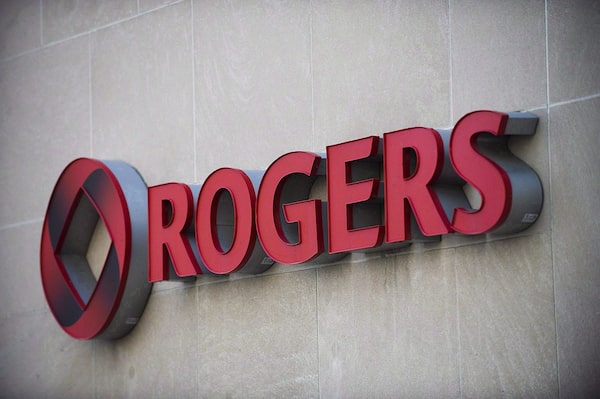
The Rogers Communications sign marks the company's headquarters in Toronto, April 25, 2012. THE CANADIAN PRESS/Aaron Vincent ElkaimAaron Vincent Elkaim/The Canadian Press
The Federal Industry Minister says he won’t allow Rogers Communications Inc. to acquire all of Shaw Communications Inc.’s wireless licences in a proposed $26-billion takeover because doing so would be at odds with Ottawa’s desire to encourage competition in the industry.
Innovation, Science and Industry Minister François-Philippe Champagne said “many Canadians have expressed serious concerns” about the deal, which could eliminate Shaw’s Freedom Mobile, reducing the number of wireless players from four to three in Ontario, Alberta and British Columbia.
“As I have noted before, I share these concerns,” Mr. Champagne said on Thursday, adding that promoting competition and improving wireless affordability are priorities for the government.
The deal would combine two of Canada’s largest cable operators.
Mr. Champagne left the door open to allowing some of Shaw’s wireless licences to be transferred to Rogers. His statement was the first time the minister has spoken in such detail about the takeover bid.
“The wholesale transfer of Shaw’s wireless licences to Rogers is fundamentally incompatible with our government’s policies for spectrum and mobile service competition, and I will simply not permit it,” Mr. Champagne said.
Rogers and Shaw said in a joint statement that they are working constructively with the government and regulators and expect that the deal will close in the first half of this year.
“We share the government’s view that affordable, high-quality services should be available to every Canadian, and by coming together, Rogers and Shaw will make the generational investments in networks and technology that Canada needs to create new jobs, increase competition, and bridge connectivity gaps in rural and remote areas,” the companies said in a statement.
The Ministry of Innovation, Science and Economic Development is one of three federal bodies reviewing the proposed takeover, and its role is to examine the transfer of wireless spectrum licences from Shaw to Rogers.
Spectrum licences, which the federal government issues, give telecoms exclusive rights to use a particular frequency band for a specific purpose, such as providing wireless services. Spectrum is a limited and valuable resource; last year’s auction for 5G airwaves raised a record $8.9-billion in proceeds for Ottawa.
The deal also needs approval from the Competition Bureau and the Canadian Radio-television and Telecommunications Commission (CRTC). The CRTC has completed its public hearing into the matter. Decisions from all three regulators are expected “in due course,” Mr. Champagne said.
The minister’s statement comes ahead of a report by a House of Commons committee on industry and technology regarding the deal. Mr. Champagne is scheduled to appear before the committee on Friday.
The Globe previously reported that the committee, which comprises members of Parliament from the Liberal, Conservative and New Democratic parties and the Bloc Québécois, is advising Ottawa not to approve the deal unless Rogers agrees to sell Shaw’s wireless business. The tabling of the report was scheduled for earlier this week, but has been postponed.
Quebecor Inc.’s chief executive officer, Pierre Karl Péladeau, who has expressed interest in buying Freedom Mobile if it were put up for sale, called Mr. Champagne’s statement a step in the right direction.
“As Bell, Rogers and Telus already control 90 per cent of Canada’s wireless market, it is imperative that we create the necessary conditions for real competition in order to give consumers more choice, better prices, better services and more innovation,” Mr. Péladeau said in a statement.
RBC analyst Drew McReynolds said in a note to clients that “the minister’s position is entirely consistent with our long-standing working assumption” that Rogers would likely be required to divest some or all of Shaw’s wireless assets to obtain full regulatory approval of the acquisition.
Mr. McReynolds said he believes it’s highly likely that Rogers will close the deal, pointing to a number of potential buyers for the wireless business and a variety of ways to carve up the assets.